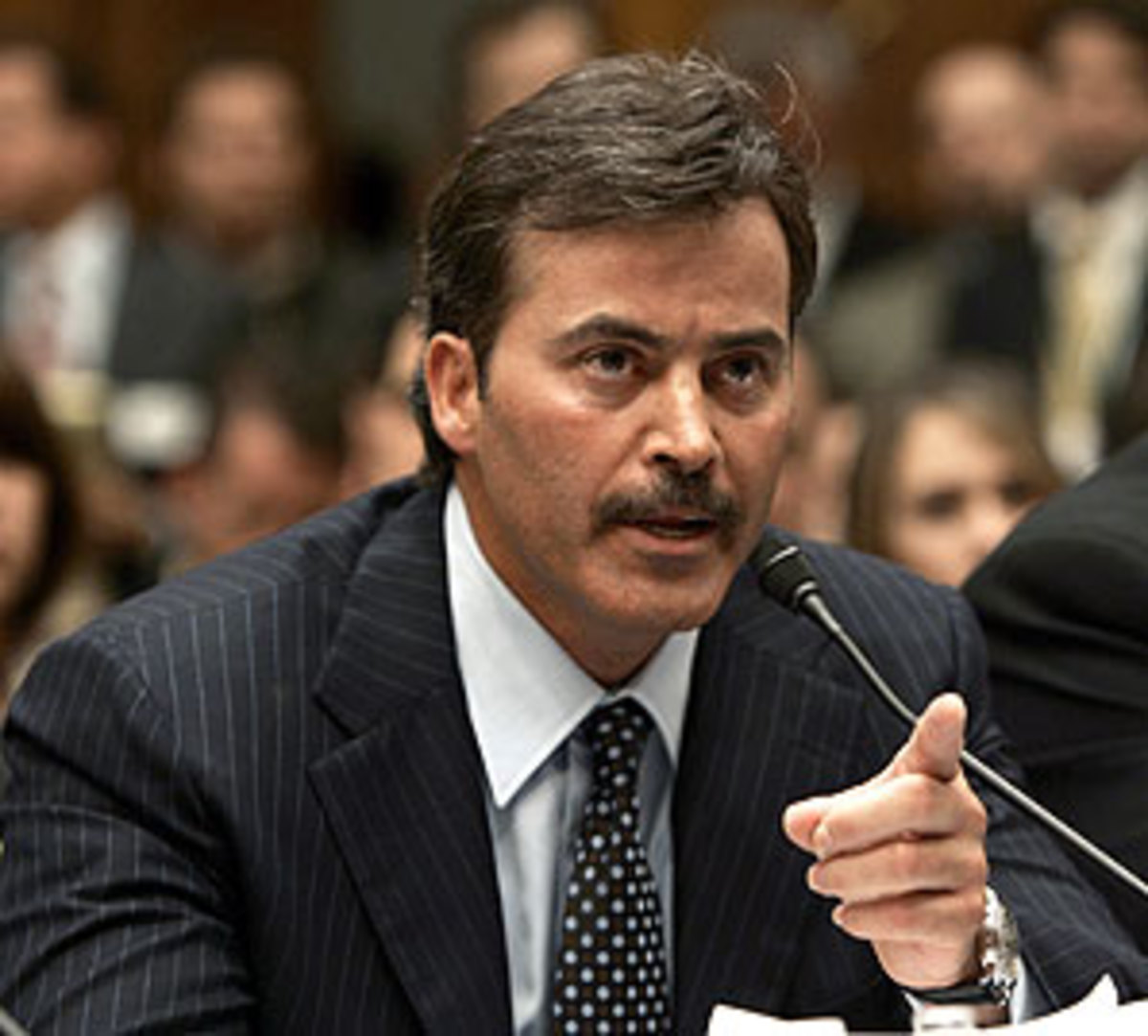Palmeiro on Hall of Fame snub: 'I feel like the forgotten man'


Rafael Palmeiro is one of four players to have 3,000 hits and 500 home runs in his career, but Wednesday, those elite accomplishments couldn't get him even close to the Hall of Fame.
In his first year on the ballot, Palmeiro received 11 percent of the vote by the Baseball Writers Association of America, a new low for players linked to steroids.
For Palmeiro, who watched the results on TV at his home in Arlington, Texas, it wasn't a good feeling.
"Baseball is my life,'' he said in a telephone interview with SI.com. "Today is a special day for baseball. It was supposed to be a special day (for me), but I feel like the forgotten man. I'm disappointed in my total because I thought I would get more votes. But, I'm grateful for what I received, and that keeps me on the ballot for another year. That's good. And, I'm happy for Robby Alomar, a guy I got to play with for a few years in Baltimore. He deserves to be in the Hall.''
Many feel Palmeiro does as well, especially since he joins Henry Aaron, Willie Mays and Eddie Murray -- each of whom are already enshrined in Cooperstown -- as the only players with at least 3,000 hits and 500 home runs. In his 20 seasons with the Chicago Cubs, Texas Rangers and Baltimore Orioles, Palmeiro amassed 3,020 hits and 569 home runs -- sure-fire Cooperstown numbers -- but voters felt those numbers were outweighed by a positive steroids test and a 10-game suspension he received with the Orioles in August of 2005, two months before he retired and five months after he wagged his finger at Congress in a much-publicized U.S. House hearing, saying under oath that he had never taken steroids.
Palmeiro said in 2005, and again last week to SI.com, that he had never taken steroids intentionally. He said he had a tainted does of vitamin B-12 from Orioles teammate, shortstop Miguel Tejada.
"There's nothing more I can add to the story,'' Palmeiro said Wednesday. "Nothing has changed, that's what happened. It's tragic. It's sad.''
Since his retirement after the 2005 season, Palmeiro said that he hasn't thought much about baseball, but in the last few weeks, leading up to the Hall of Fame vote, Palmeiro said he's taken time to reflect on his career. He's spent time listening to BBWAA voters talk in the media about his Hall of Fame chances.
He thinks there are discrepancies in their thought process.
"I hear some voters talk about how they'll probably vote for Barry Bonds because he was a Hall of Famer before he (allegedly) took steroids,'' Palmeiro said. "Well, why can't they do the same thing for me? I had one bad mistake at the end of my career.
"Voters are putting too much weight on the one incident,'' Palmeiro said. "I wish they would look at my whole career. If they want, why don't they use throw out the last season of my career? I would still have Hall of Fame numbers.''
In 2005, Palmeiro, playing for the Orioles, recorded his 3,000th career hit July 15 in Seattle, and the next month, Major League Baseball suspended gave him the suspension.
Last week, in an interview with SI.com, Palmeiro said that while Tejada gave him bad B-12, it was his wife, Lynne, that injected him with the liquid vitamin.
Palmeiro also said he sought advice from a sitting president, George W. Bush. After Palmeiro got his 3,000th hit in 2005, Bush, a former owner of the Rangers when Palmeiro played in Texas, called Palmeiro in his Seattle hotel room to offer congratulations.
A few days before his positive test was made public, Palmeiro said he called Bush in the White House to give him the news. Palmeiro said that Bush told him to "tell the truth'' and "stick to his story.''
Palmeiro was in a quiet mood Wednesday. He doesn't know what his chances will be to make the Hall of Fame, but he hopes that after a few more years on the ballot, voters' perspectives will change in his favor.
"I'd love to be in the Hall of Fame, but it is not up to me anymore,'' Palmeiro said. "I've put up my numbers, and they aren't going to change. It is out of my hands. I'm just going to hang in there and hope that in the future, voters will judge me for my entire career.''
Is there any way Palmeiro can get into the Hall of Fame?
"Not unless something happens that makes steroids OK,'' says BBWAA voter Murray Chass, a former reporter with the New York Times.
The previous litmus test for a player with a steroids cloud was Mark McGwire, who hit 583 home runs and was on the ballot this year for the fifth time. Last January he admitted to having used steroids throughout his career, including 1998, when he hit 70 home runs to set a new single-season record. McGwire's highest vote total was 23.6 percent in 2008, but he received 19 percent Wednesday, the first vote since he admitted using steroids.
